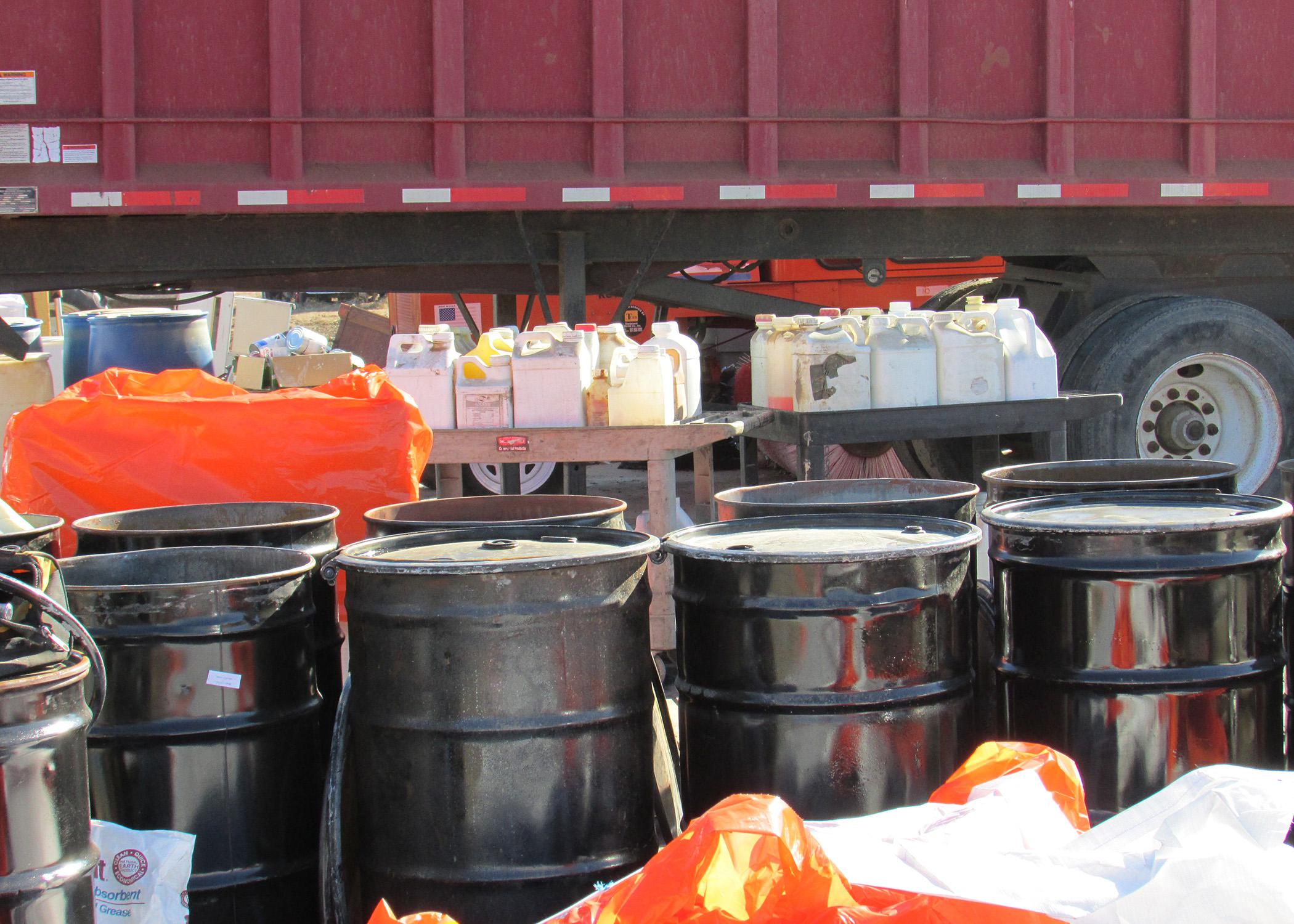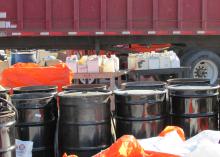Information Possibly Outdated
The information presented on this page was originally released on December 19, 2013. It may not be outdated, but please search our site for more current information. If you plan to quote or reference this information in a publication, please check with the Extension specialist or author before proceeding.
Disposal event makes farm clean-up easier
MISSISSIPPI STATE – Producers accumulate a variety of unused materials on the farm over time, and some of them require special handling for disposal.
A pesticide disposal program has been making clean-up on the farm easier since 1994 by providing a way to get rid of waste pesticides and potentially hazardous materials.
On Dec. 12, the Mississippi State University Extension Service coordinated one of two planned pesticide collection events. Organizers invited farmers to drop off leftover pesticide products, triple-rinsed pesticide containers and waste tires at a collection point in Sharkey County.
A licensed hazardous waste contractor collected materials for disposal according to state and federal environmental regulations.
The event collected 38,000 pounds of waste product from more than 30 growers in 11 counties.
Mary Love Tagert, an assistant Extension professor in agricultural and biological engineering at MSU, said proper disposal of farm chemicals helps farmers while also protecting the state’s natural resources.
“Producers and landowners have few options when disposing of waste pesticides, especially for outdated products that are no longer registered for use,” Tagert said. “This program provides farmers a safe, easy and legal way to dispose of any and all pesticide products they no longer need or are not able to use.”
Jason Ward, an assistant Extension professor in agricultural and biological engineering, said he and Tagert worked with county Extension agents to promote the program to agricultural producers.
“Extension county agents helped us get the word out to growers so they could safely dispose of cancelled or otherwise unusable products such as insecticides, herbicides, fungicides and plant-growth regulators,” Ward said. “We provided information on how to handle the materials safely, how to transport them properly and the conditions for accepting their materials at the site.”
The program is provided at no cost to farmers by the MSU Extension Service and the Mississippi Department of Agriculture and Commerce with funds from the Mississippi Department of Environmental Quality.
Tagert and Ward will organize a second pesticide disposal event in the Northern Delta in early 2014, depending on funding. For more information, contact Ward at 662-325-4148 or Tagert at 662-325-4617.





